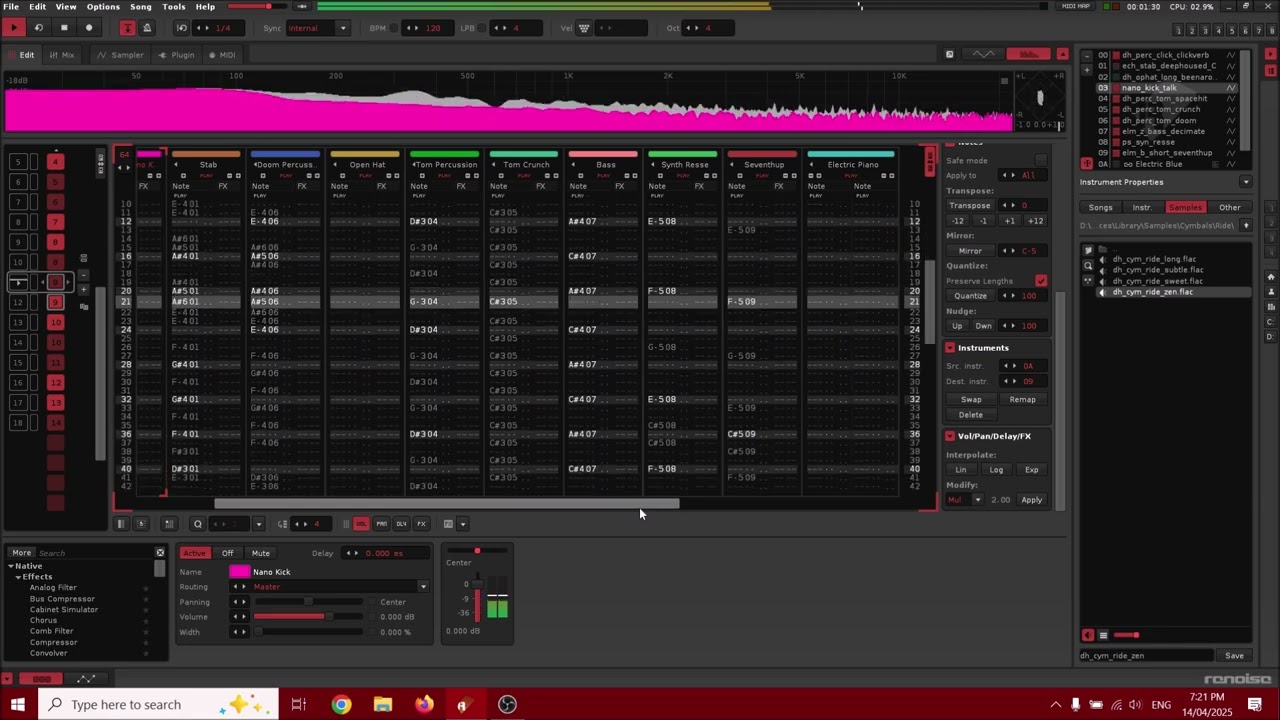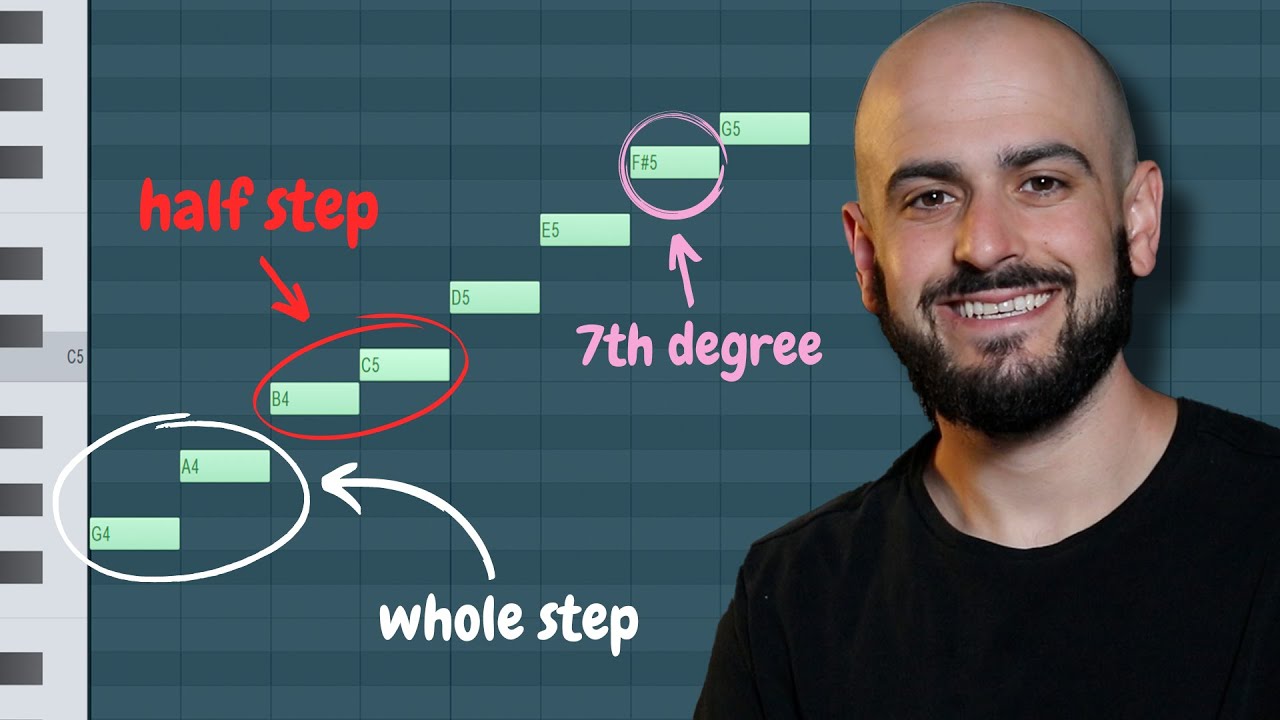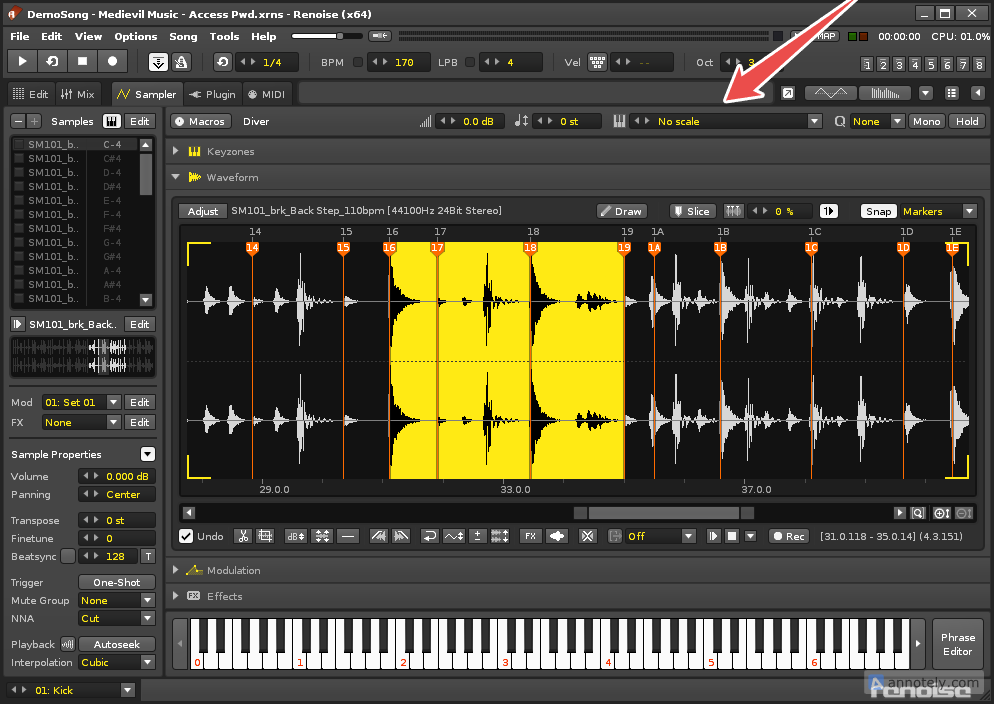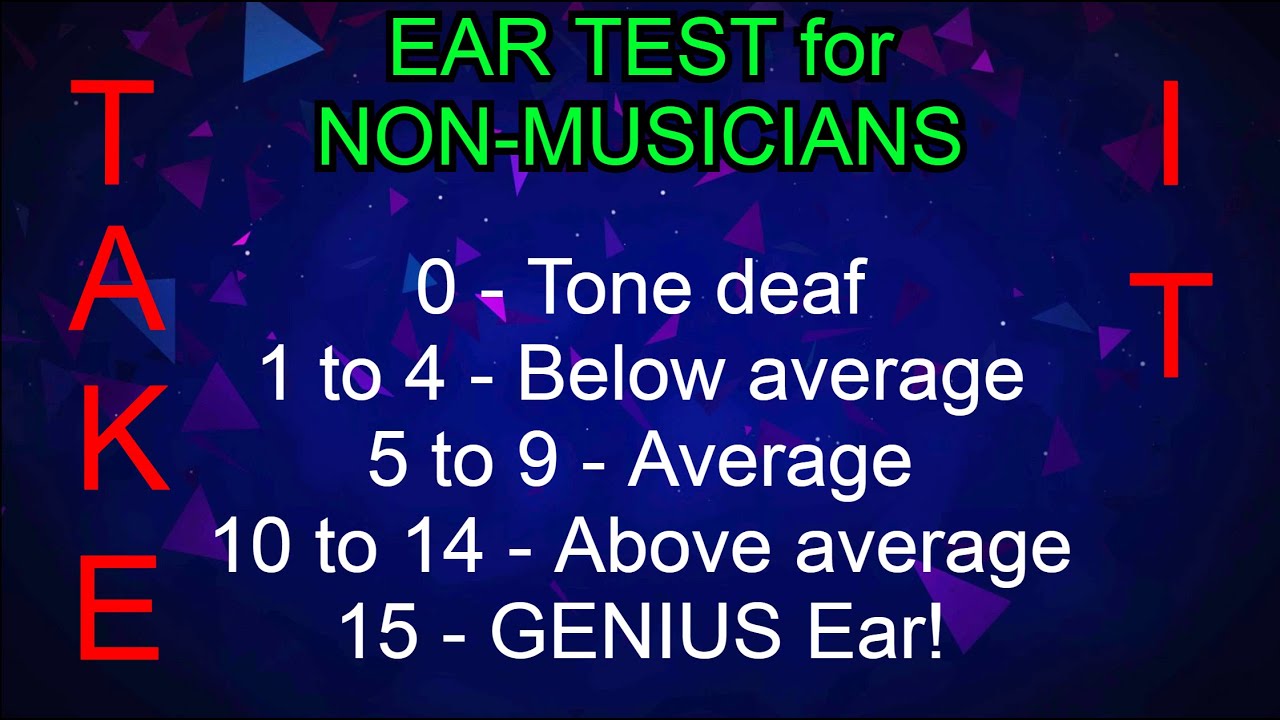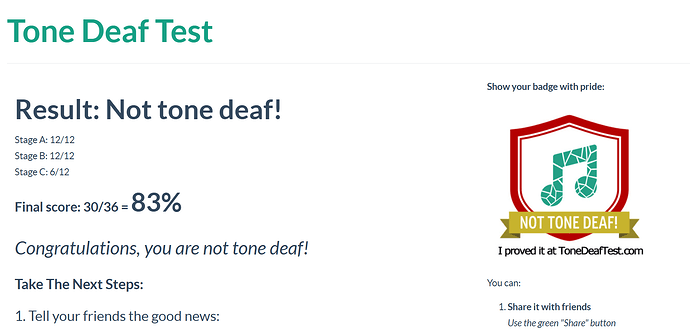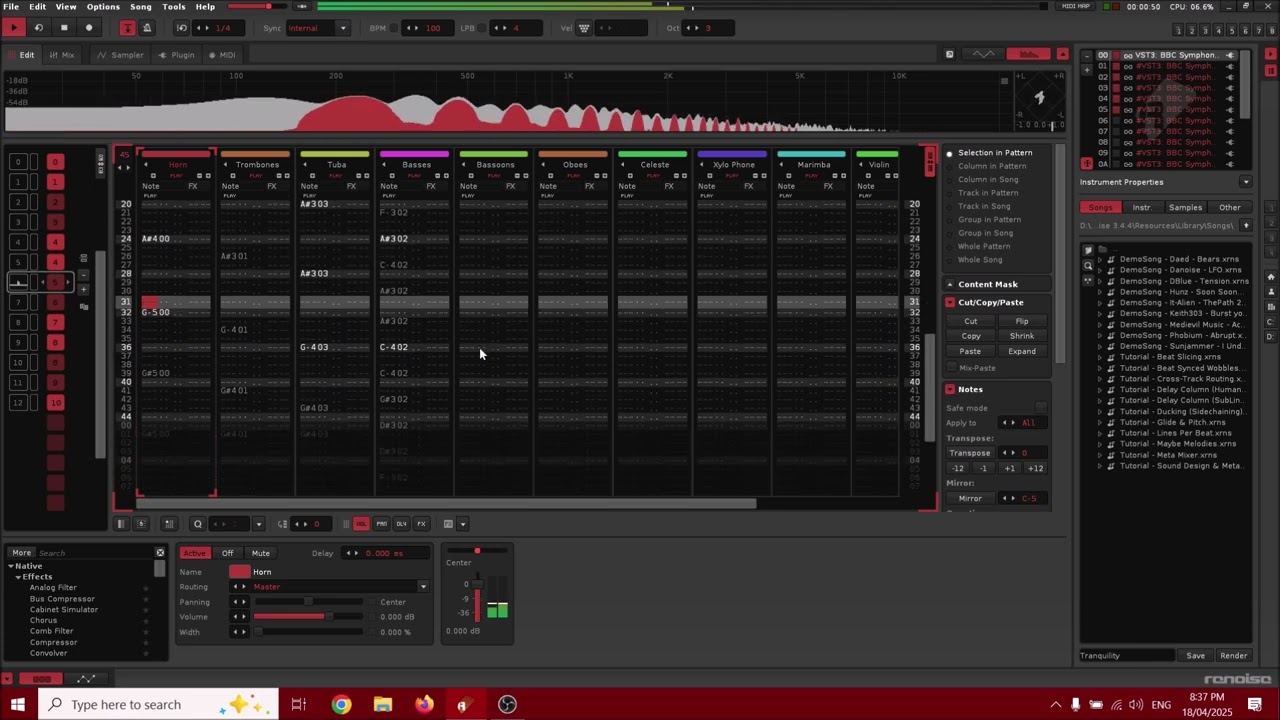It is like mine and probably everybody else first steps in music making,a complete mess ![]() .Dont be discouraged by what i said,its just a joke.You need to understand basic music theory first because from this song i understand that you dont have a music ear yet,that can be fixed if you put the effort that is.Watch the video below and dont expect to produce bangers any time soon,start with simple stuff and if you do this every day good music will eventually happen,believe in yourself its a key part in every art form.Get a midi keyboard so you can hook it up on your pc to practice,you dont have to be a virtuoso on it but it will help you a lot,a midi keyboard and your pc is all you need to make great music.Music is a great journey ,one of the best this life has to offer.Keep posting your music no matter what anyone else will tell you,we are here to help.
.Dont be discouraged by what i said,its just a joke.You need to understand basic music theory first because from this song i understand that you dont have a music ear yet,that can be fixed if you put the effort that is.Watch the video below and dont expect to produce bangers any time soon,start with simple stuff and if you do this every day good music will eventually happen,believe in yourself its a key part in every art form.Get a midi keyboard so you can hook it up on your pc to practice,you dont have to be a virtuoso on it but it will help you a lot,a midi keyboard and your pc is all you need to make great music.Music is a great journey ,one of the best this life has to offer.Keep posting your music no matter what anyone else will tell you,we are here to help.
Nice little tune. Maybe try using the volume column on some of the notes, you can go far with just that. No need for music theory lessons, unless its something you really want to learn about.
Create and have fun this software gives you lots of power to make your own music.
after a while you will notice that your music is changing, if you know more how Renoise works that you can create more tracks, sounds etc…
I would like to give you one idea to start with.
If you want to play melodies, use vst instruments instead of wave files. You will hear a huge change in your production.
Try this one, is for free, install, see how it works (there is lots of free vst instruments)
If you have any questions just ask.
PS. I totally agree with Stoiximan.
Totally agree with that. So @Power107, first play a little with the notes by playing some keys on your keyboard (your computer keyboard will turn into a piano), just try to get a feeling for melodies and chords and look what happens. No need for music theory, just play around a little. But no matter what you do, ALWAYS ask yourself one question from a neutral perspective:
If your creation would be played on the radio, would you listen to it?
If the answer is no, then change it. If it’s yes, go on. And be brutally honest to yourself!
Thanks a lot everyone for the feedback and very good suggestions.
I agree, my song really is nowhere of the quality that I want it to be. This is why I created this post and asked for your feedback.
Really appreciate your feedback so far and expect to also receive it in future when I share my later songs.
I am trying to learn how to train my ear for music… ie to identify if a played melody is c4, a4, d3 etc…
Also i am going to work on my next song which uses VSTs and will be posting it online too even if its not great. the reason i post work online is that i can get feedback and also its archived for a very long time. so 10 years later i can go to my youtube channel and see what my skills were like back then.
There is a scale mode in Renoise that locks whatever you play so it will always sound good.Make a track this way for starters.You must enable this for every instrument in your track except drums
I strongly suggest to focus on rhythm first. Your instruments are mostly out of rhythm. See those highlighted lines in the pattern editor? Those are the beats. If your patterns have a length of 64 lines and you’ve got 4 lines per beat (LPB), which is the case in your song, then you should set your drums (and everything else and in between) according to those beats. As soon as you learned how to keep the rhythm, you could go on and check notes, chords and melodies. One step after another… ![]()
I bet in 10 years you will have deleted everything that you don’t like and which doesn’t match your future standards. You could listen to your song files in private anyway (as long as you still got all those VSTs in case you’re using VSTs). Personally I deleted literally hundrets of songs on my YouTube and SoundCloud channels.
Edit:
If you’re looking for a free synth VST, I would recommend Synth1. But it’s an old one, there are no current updates. The newest one was released 11 years ago. But it’s free and there are literally TONS of presets available, which is very nice to start with as a beginner.
you could check out the Surge Synthesizer.
if your track btw is samples only, just share the xrns.
what i would recommend is try making a pattern where every melodic instrument plays C4. even the bass. then try it so that you lower the bass note to say A3 or G3 or F3 and see how every other melodic sound changes in connection to the now-lower-bassnote. this way you’ll start learning how differences in note pitch affect how you feel about a melody, or a rhythmic melody.
but it is generally considered difficult (yet almost everyone who starts tracking, starts with it) to make decent melodies if the samples actually contain more than one note at the same time (if you have a sample with say a three-note chord on it, and you try to make a melody with it, you’re gonna generally have a pretty bad time).
so try and go with oneshot melodic samples instead of chord samples (samples with multiple notes playing at the same time)…
Wow , this is either next nevel trolling , or you’re tonedeaf .
I dont have any background in music. Neither do i have ear training.
However i completed many parts of this test recently:
This shows I am not tonedeaf, its just that i need to practice with ear training. Also I know, when working with samples a ‘D’ note may not sound like D since a sample is not necessarily a ‘C’.
This is most likely causing the issues with my song and i am feeling that as i focus on it more.
EDIT: proof i am not tonedeaf
Of course you are not tone deaf, and everyone’s first piece is always like that, and no one would ever know what I have done with Notessimo 2 back in the days ![]() Surprisingly, I do find it quite enjoyable to listen, and beginning part of your track kinda reminds me of the final boss theme on Ranger X but slower.
Surprisingly, I do find it quite enjoyable to listen, and beginning part of your track kinda reminds me of the final boss theme on Ranger X but slower.
Making music and being proficient to is hard and it take a long time to know and practice all the concepts, at least you definitely have fun and you don’t use any hacky and soulless way like using Suno and call it a day which are already a great first step into making music.
The next steps might require you to know which direction you may go because different genre of music have different dominant components. For example, if you want to write chiptune, orchestral or pop music, melodies and chord progressions will be a first priority, but if you want to do ambient, techno and dubsteps, you may need to know more about sound design, or if you want to write breakbeat, dnb or jungle, you may need some knowledge on beat slicing; thus, let’s see which genre you like the most and focus on the knowledge of that genre.
This is definitely a good choice for many reasons. It is definitely a timeless vst which is also very lightweight and light on CPU, so anyone’s computer also can run it.
I think Surge is a bit complicated for a beginner because it has quite a lot of parameters to understand. I guess as a beginner perspective, we need things that works great out of the box or it has massive present collection or it has a clean gui. Thus, I think Tal noise maker would be a good option: TAL Software.
So you don’t thear that at 01:28 in your song everything clashes with everything else ?
When you bring it that supersaw , why are you playing those exact notes ?
They are horribly out of tune with everything else , it’s like you put in some random notes and hope for the best result .
That is what I call tonedeaf , it has nothing to do with perfect pitch , it’s just the abscence of feel for harmony and sense for melody .
Should all music be melodic ? sure not , but at least there shoul be a sense of coherence .
Music shoud fun , and if you’re having fun that’s cool , but it’s just horribly bad even for a first song .
Sorry , I don’t want to sound harsh , just being honoust
Huh. I thought it was pretty cool. But I like atonal music lol. OP, just keep on keeping on. Forge the sound that you want to hear. Whatever that may be. There’s room for all kinds of music in this world. Melody and harmony are often overrated, especially by beginners. What the brain craves is pattern recognition and surprises once the pattern gets recognized. So there’s a lot of leeway there. Some people focus on sound design, some people focus on Melody and harmony, some people focus on rhythm. But if you’re just starting out, I would recommend exploring as much as you can. Make music without any preconceptions. Study theory if you want to, as it can be interesting and helpful, but never rely on it as a constraint. It’s important to remember that theory has been developed to analyze music and understand music that has already been written. The music comes first. So, create your own music! Find your own sound. It might take a while. I started making electronic music in 1995, and I’m still learning a lot.
Peace
I have the impression that we are overcomplicating things here. Maybe just go on, make another tune… I like the rhythmical aspects in your song. Maybe try not to use sampled chords and then transpose those… That is limiting your tonal possibilities by a lot. Instead use monophonic samples, and play the chords yourself.
It’s just free jazz.
Years ago, like, 25 years ago - I remember getting a cracked version of Fruity Loops and proudly burning my first creation to CD to play in a mate’s car with a subwoofer etc. The breakneck, whiplash from “this sounds good on my HP computer speakers” to wanting to shit my skeleton out in embarrassment still haunts me lol.
The moral of the story is - keep going! Renoise and a smattering of free plugins and you can honestly go as far as you want. Thanks for sharing.
![]()
![]()
![]()
Wanted to make something new and to use free VSTs. This is what i come up with:
Since VSTs were used instead of samples, there should be no issues like last time… pitches of all notes are correct, I hope,
Alright, you seems that you want to work on orchestral pieces judging by the use of vst, but before leaving a feedback, I need to know what your story behind this piece is so that I can know if you intentionally writing a certain passages or not, along with the composer or band you wanna mimic, or the style of music you wanna write (more traditional or experimental; more emotional or epic)
These information are important which can determine the type of feedback I would give.
